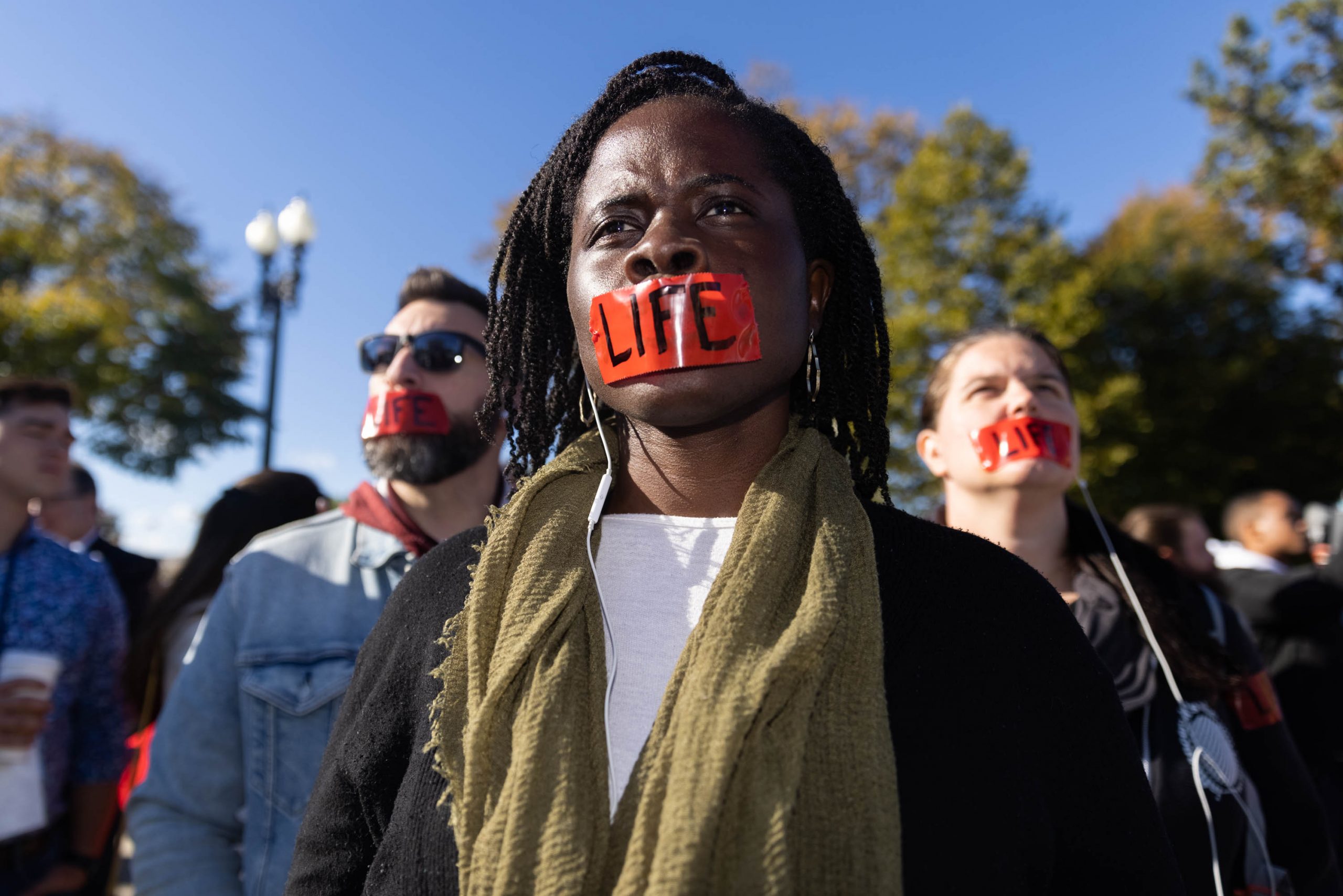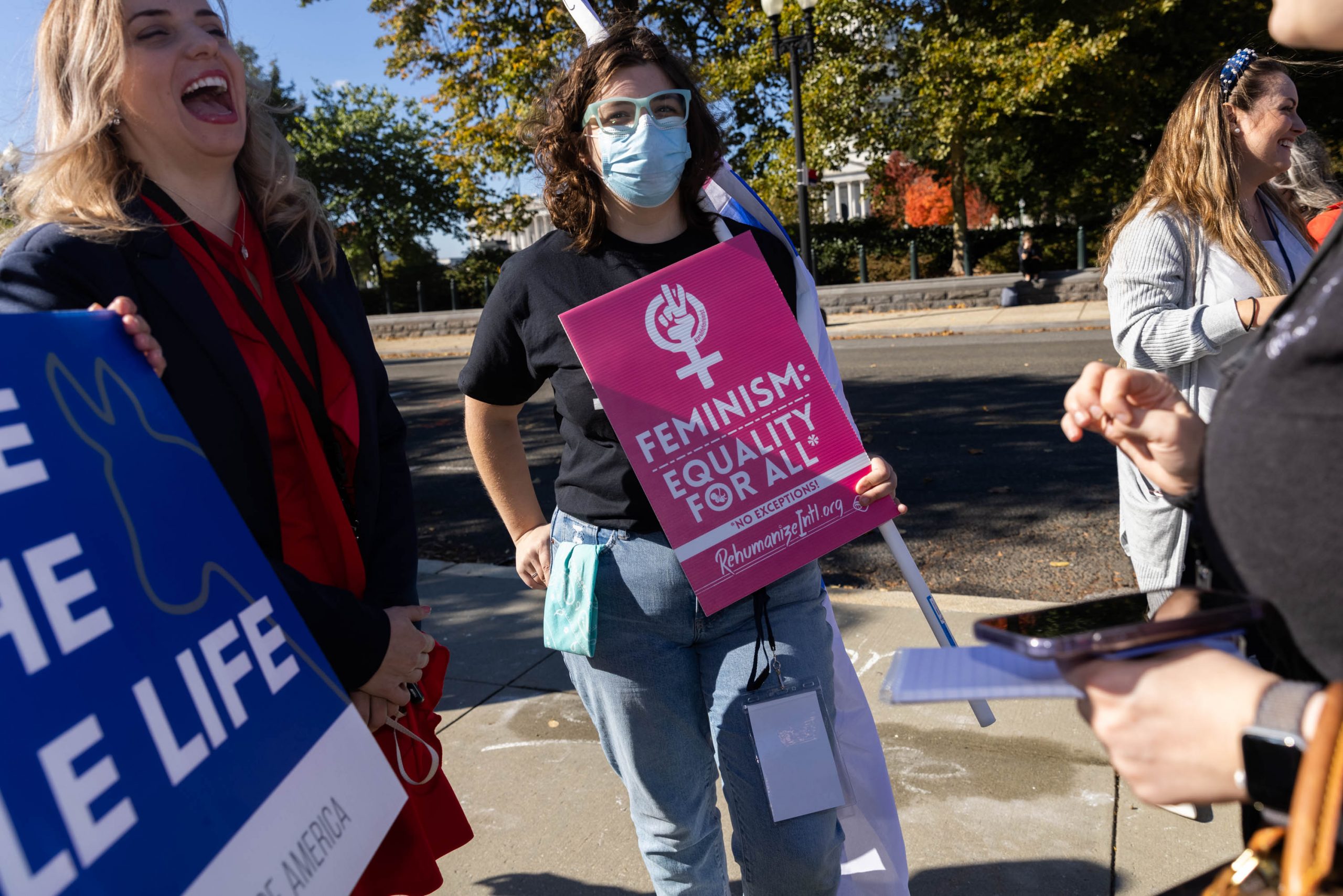Dozens of protesters on both sides of the ideological aisle gathered outside the Supreme Court on Monday as justices began deliberations over the Texas abortion law that could lead to Roe v. Wade being overturned.
The Supreme Court concluded its first round of discussions over the Texas Heartbeat Act, which went into effect on Sept. 1 after justices decided not to act on an emergency appeal to block enforcement of the measure. The law has been criticized by pro-abortion rights advocates and providers for having a chilling effect on the constitutional right to abortion established under Roe, while proponents of the law argue its provisions allow for abortion procedures before six weeks of gestation.
The demonstration was divided physically, with advocates for abortion rights standing on one side and anti-abortion protesters along the other.
ADVOCATES AND OPPONENTS OF TEXAS ABORTION LAW CLASH IN SUPREME COURT HEARING

Pro-life protestors: “Let their hearts beat!”
Pro-abortion protestors: “Bans off our bodies!” pic.twitter.com/uwXBLXczLF
— Mary Margaret Olohan (@MaryMargOlohan) November 1, 2021
Protesters against the Texas law carried signs reading “No Texas Talibans!” They also drew chalk messages on the pavement saying, “Abortion is Healthcare.” Some demonstrators in favor of the law chanted, “Let their hearts beat!” Dissenters responded, “Bans off our bodies!”
The hearing for the Texas heartbeat law comes just a month before the Supreme Court is slated to consider the legality of Mississippi’s ban on most abortions after 15 weeks of pregnancy. A majority of justices on Monday signaled they may allow abortion providers to seek court challenges to the Lone Star State’s law. However, deliberations are set to resume Tuesday.
CLICK HERE TO READ MORE FROM THE WASHINGTON EXAMINER
Many demonstrators on Monday said they plan to be back at the marble steps on Dec. 1 when the Supreme Court takes up the Mississippi abortion ban law, according to the New York Times. The Mississippi law was the first to reach the court from a wave of state laws intended to challenge the 1973 Roe decision, which declared access to abortion a constitutional right.

